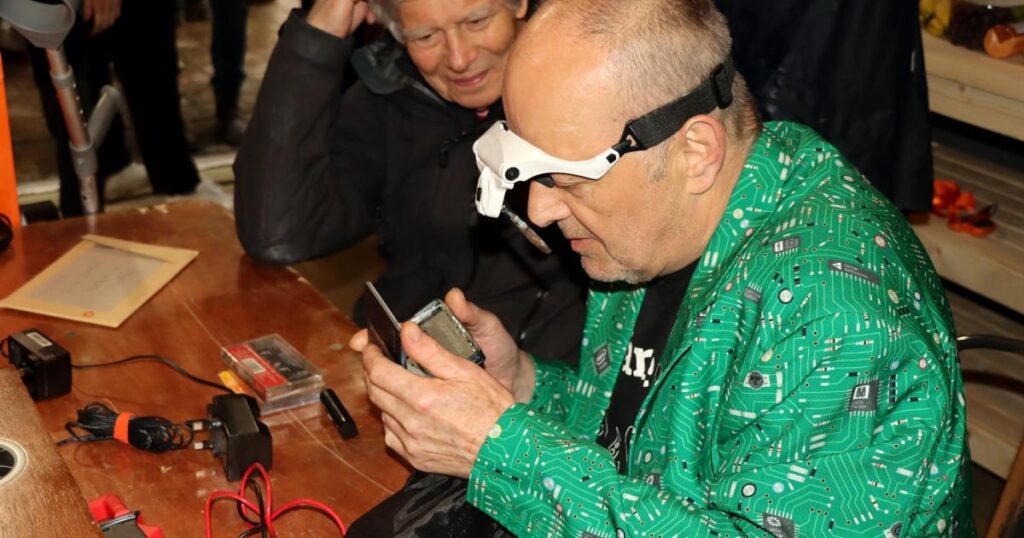The community repairing project aims to tackle the problem of E-waste, which could also help sort out the planet’s global warming.
It a follows pilot pop-up session in Wembley and a ‘fixing factory’ in Kentish Town at 179 Queens Crescent run by two climate charities, Possible and the Restart Project.
The Hackney ‘fixing factory’ has been set up at 4 Dispensary Lane in The Narrow Way, off Mare Street.
The idea sorts out broken electricals and shows basic mending skills — all to shift us from our indulgent consumerism back towards a ‘repair’ economy, just like our grandparents and their ‘make do and mend’ mentality during Second World War shortages.
“We want to have a ‘fixing factory’ in every high street,” the Restart charity’s Shelini Kotecha revealed. “Making repairs should be ‘the norm’ so people fix up their electricals rather than throw them away.”
It follows the pop-up “repairs café” in Willesden in 2022 when 100 people turned up to have items patched up by volunteer fixers tackling our “throw away” society. The café was part of a ‘green neighbourhoods’ action plan for Willesden and Kingsbury to reduce waste.
One woman who dropped in was Jyotika Patel, who brought in a radio from her home in Wembley to be looked at. It was a gift from her late mum.
Jyotika recalled: “I remembered mum every time I played the radio — but sadly it broke a few years ago. I kept the radio even though it wasn’t working.” She got it fixed in just a few minutes.”
Lee Tan brought in an ornate garment she bought 20 years ago with its buttons having come off. It had been sitting in a cupboard at home in Dollis Hill for years until a volunteer from Traid charity helped her sew on new buttons to give it a new lease of life.
Britain is the second highest producer on the planet for ‘E-waste’ per head of its population, the charities point out. That’s because there is a lack of local repair shops for household appliances or knowing how to fix them.
So a new generation of ‘fixing factories’ is opening up to show how to repair stuff and give broken gadgets a second lifespan to save money — while helping reduce waste by not having to buy new consumer items when you can ‘make do’.
The repair sessions so far have saved three tonnes of E-waste and 53 tonnes of CO2 over the last two years in north London alone.




